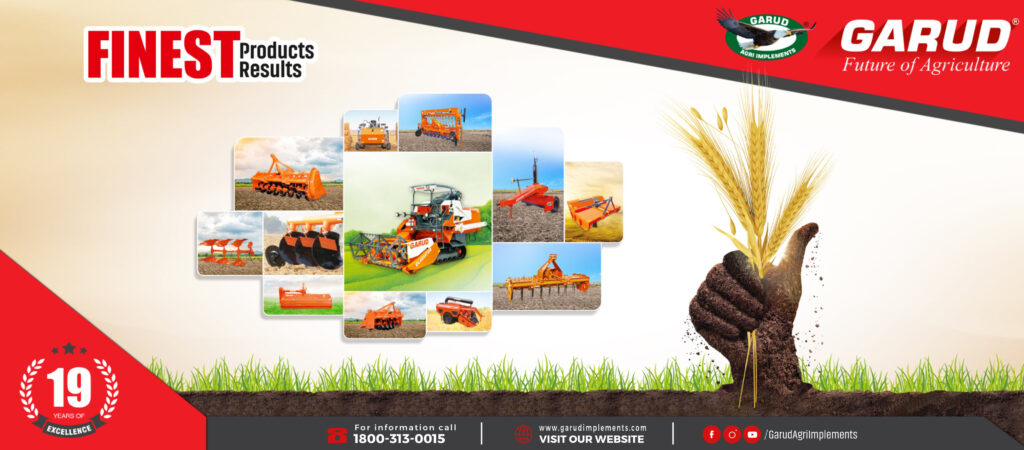Combine Harvester: A Multipurpose Machine for Farmers
July 26, 2024Tiller Machine: Powering Your ToWay Through Fruitful Farming
August 1, 2024Agriculture implements has been the backbone of human civilization for thousands of years. From the dawn of farming to today’s high-tech agribusinesses, one constant has remained: the need for tools and implements to make farming more efficient and productive. Agricultural implements have evolved dramatically over time, and their benefits are numerous and profound. In this blog, we will explore the key advantages of using agricultural implements and how they contribute to the success and sustainability of modern farming.

1. Increased Efficiency and Productivity
One of the most significant benefits of agricultural implements is the increase in efficiency and productivity they bring to farming operations. Implements like tractors, plows, and harvesters enable farmers to perform tasks that would otherwise be time-consuming and labor-intensive. For example:
- Tractors can cover large areas quickly, reducing the time and effort required for plowing, planting, and harvesting.
- Seed drills ensure even and precise planting, leading to better crop yields.
- Harvesters can process large quantities of crops in a fraction of the time it would take to do so manually.
This increased efficiency allows farmers to cultivate larger areas and produce more food, which is crucial in meeting the demands of a growing global population.
2. Cost Savings
While the initial investment in agricultural implements can be significant, the long-term cost savings are substantial. Implements reduce the need for manual labor, which can be expensive and hard to find, especially during peak seasons. Additionally, modern implements are designed to be durable and require less maintenance, further reducing costs over time. For instance:
Irrigation systems can be automated to ensure precise watering, reducing water waste and lowering utility bills.
Precision farming equipment uses GPS technology to apply fertilizers and pesticides only where needed, cutting down on chemical use and associated costs.
These savings can be reinvested into the farm, allowing for further improvements and growth.
3.Improved Crop Quality and Yield
Agricultural implements https://www.youtube.com/channel/UCrWmBlhQ6MPqRV-UTHfjVFAplay a crucial role in improving both the quality and yield of crops. Precision planting and harvesting equipment ensure that seeds are sown at the optimal depth and spacing, and that crops are harvested at the right time, leading to better growth and higher yields. Additionally, implements such as:
- Fertilizer spreaders and sprayers ensure that nutrients and pesticides are evenly distributed, promoting healthier crops.
- Soil testing equipment helps farmers monitor soil health and make informed decisions about crop rotation and fertilization.
These advancements lead to higher-quality produce, which can command better prices in the market.
4. Labor Reduction
Farming is labor-intensive, and the availability of skilled labor can be a significant challenge. The reduce the reliance on manual labor, making farming more manageable and less physically demanding. This is especially important in regions where labor shortages are common. With the use of:
- Automated milking machines in dairy farms,
- Robotic weeders and harvesters in crop fields,
farmers can ensure that essential tasks are completed efficiently without the constant need for human intervention.
5. Enhanced Sustainability
Modern agricultural implement contribute to more sustainable farming practices. Precision farming tools, for example, enable farmers to use resources more efficiently, reducing waste and minimizing environmental impact. Conservation tillage equipment helps preserve soil health by minimizing disruption, while advanced irrigation systems optimize water use. These sustainable practices are vital for:
- Maintaining soil fertility,
- Reducing greenhouse gas emissions,
- Conserving water resources.
By adopting these technologies, farmers can ensure that their operations are not only profitable but also environmentally responsible.
6. Adaptability to Different Farming Conditions
Agricultural implement are designed to be versatile and adaptable to various farming conditions. Whether dealing with different soil types, climates, or crop varieties, there are specialized tools available to meet specific needs. For example:
- Rice transplanters are tailored for paddy fields,
- Sugarcane harvesters are optimized for thick-stalked crops,
- No-till planters are ideal for conservation agriculture.
This adaptability ensures that farmers can achieve optimal results regardless of their unique circumstances.
Conclusion
The benefits of agricultural implements are far-reaching and essential for the progress and sustainability of modern farming. From increasing efficiency and productivity to improving crop quality and reducing labor demands, these tools have revolutionized the agricultural landscape. As technology continues to advance, we can expect even more innovative implements that will further enhance the capabilities of farmers, ensuring food security and environmental sustainability for future generations. Investing in the right implements is not just a matter of convenience; it’s a strategic decision that can lead to long-term success and resilience in the ever-evolving world of agriculture.
